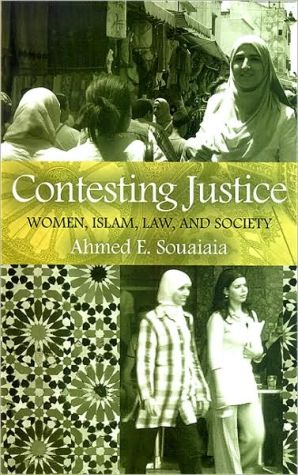Contesting Justice: Women, Islam, Law, and Society
Argues that the rights of women in Muslim society are based on the preserved cultural standards of elites, not the ethical philosophy of the Qur'an.
Search in google:
Argues that the rights of women in Muslim society are based on the preserved cultural standards of elites, not the ethical philosophy of the Qur'an.
Illustrations ixPreface xiAcknowledgments xvIntroduction 11 Legal Absolutism and Ethical Relativism 15To Know or Not to Know: The Basis of Acts 17Cognition through Models and Paradigms 222 The Domain of Ethics and the Law 25Chronology of Islamic Thought 27Ethics, Morality, and the Law 29Determining God's Position 29Core and Marginal Sanctions 33Emotion and Law in the Qur'anic Discourse 34Threats, Incentives, and Piety 34Crime and Punishment 363 Basis for the Practice of Polygamy 43On the Methodological and Historical Assumptions 43Methodological and Disciplinary Precedence 45Polygamy in the Historical Context 48The Philology of Polygamy 504 Women in Islamic Law of Inheritance 59The Qur'anic and Interpretive Dichotomy 60The Legal and Exegetical Treatment of the Verses on Inheritance 62Women, Justice, and Interpretation: The Principle of Awl 68Explicitnes, Consensus, and Interpretation 72Shares and Heirs in the Comparative Context 72Shares and Heirs per Blind Survey 79Description of Data Collection 79Explanation and Interpretation of Data 805 Women in Modern Times 87Discussion 87Linking Polygamy and Inheritance: Disadvantaging Women by the Numbers 87Discussing the Status of Women 88Other Contested Perspectives 89Bespoke Justice versus Tyranny of Majoritism 103Inclusion and Exclusion of Women 119Conclusion 121Appendix A Timeline of Scholars and Major Figures 127Appendix B Glossary of Key Arabic Terms and Their Derivatives 133Notes 149Bibliography 177Index 191







